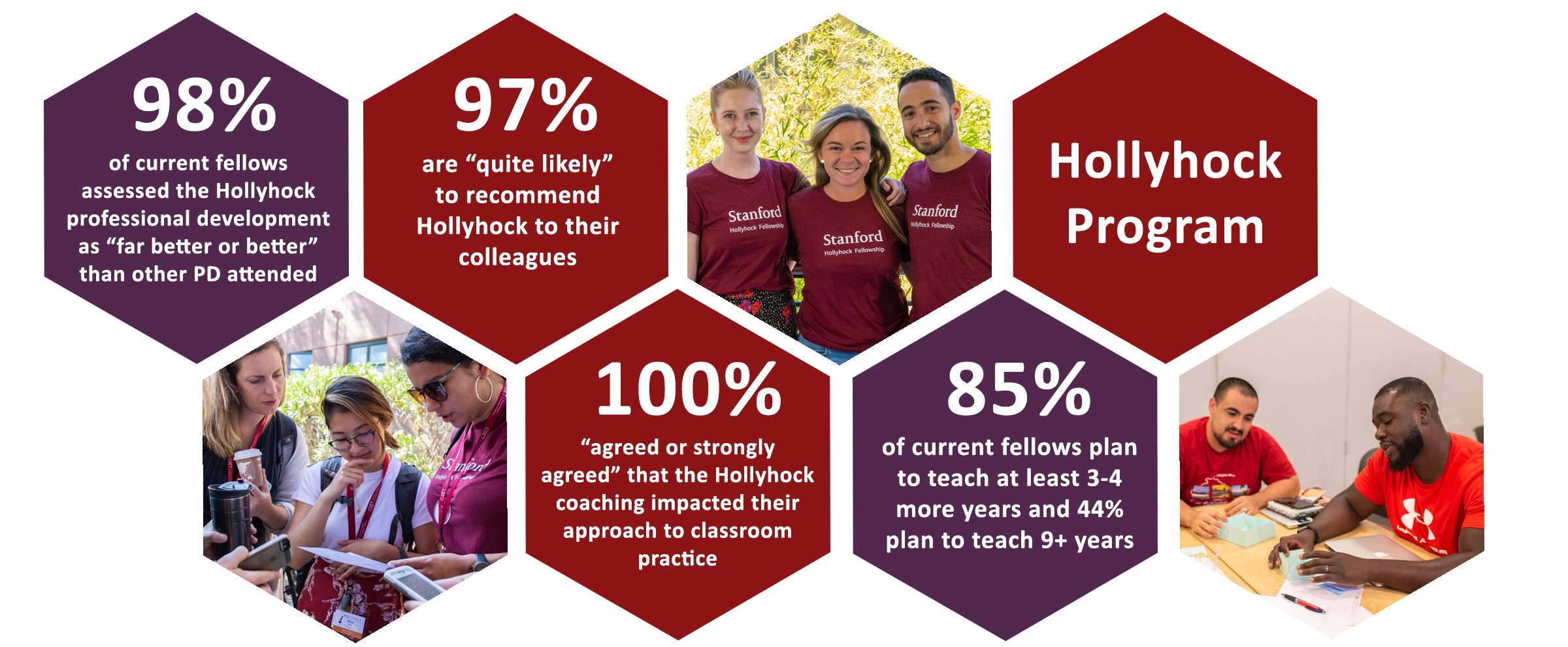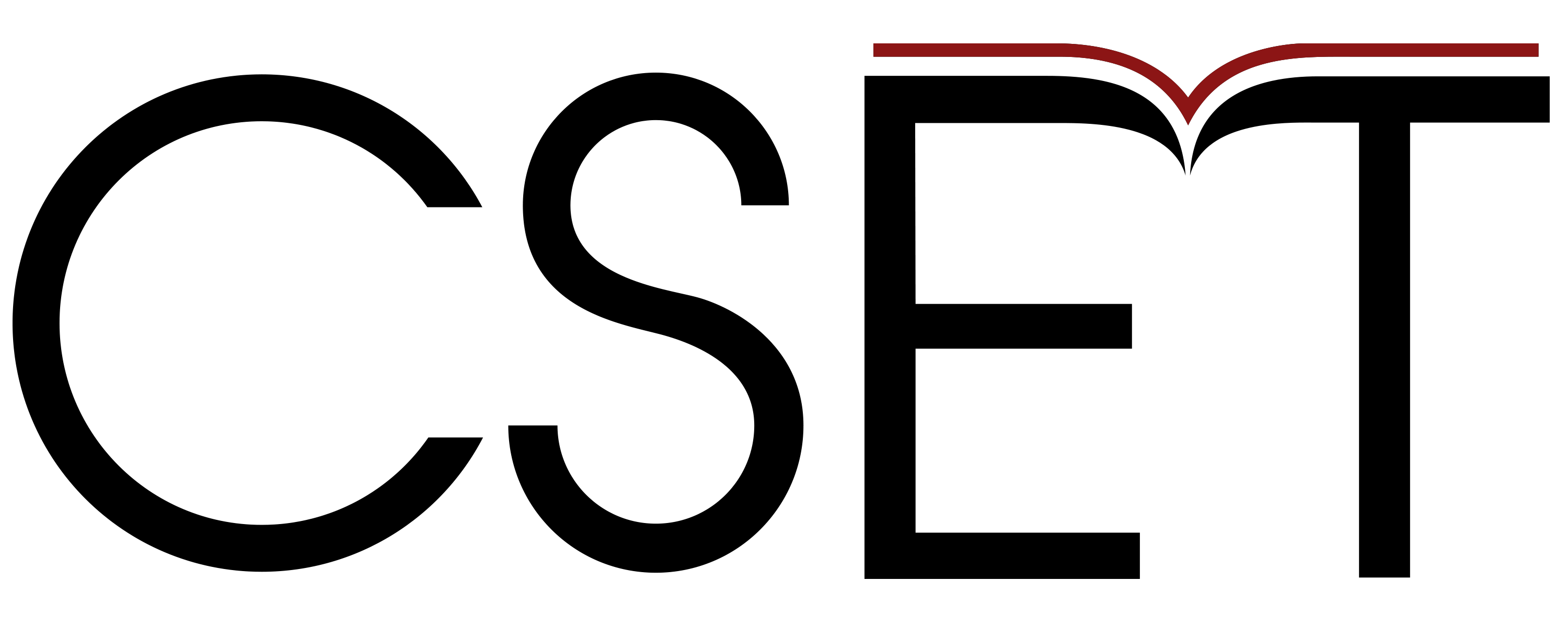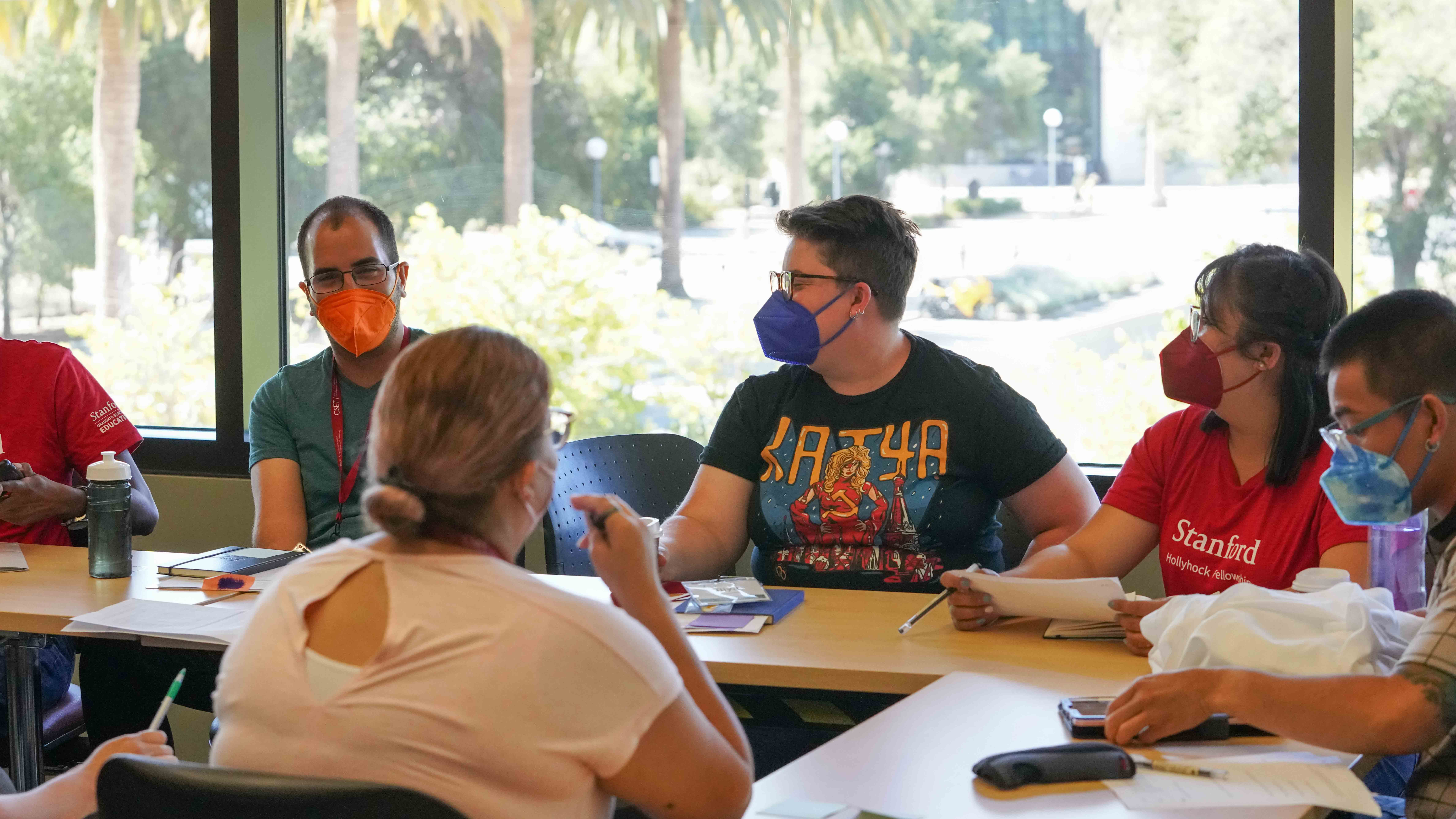The Experience
Summer Professional Learning
At the Hollyhock Summer Institute, fellows participated in a sequence of research-based professional development. The institute engages the fellows in four programmatic goals:
- improve instruction by focusing on core practices of teaching
- strengthen pedagogical content knowledge
- foster ways to develop equitable learning opportunities for all students
- build professional community within and across participating schools
The core-content sessions—English, history/social science, math, and science— focused on expanding the fellows’ content knowledge and pedagogical approach to teaching to equitably benefit all students they serve. Every fellow had an opportunity to apply the concepts learned in a rehearsal structure by enacting core practices of teaching in front of small groups of other fellows and receiving feedback. Fellows deepened content knowledge through opportunities to reflect on identity and positionality, improve pedagogical skills, and examine issues of social justice in schooling and society.
In English, we examined how teachers create the conditions for students to engage in deep interpretive work with texts. In Year 1 of the program, the focus was intuitive strategies that help students read text more critically, as well as facilitation moves that lead to rigorous classroom discussion. Fellows had opportunities to reconsider the texts they employ in their curriculum, and understand how to leverage ambiguity in these texts to craft authentic questions that ignite and propel rich discussion. Year 2 picked up where Year 1 left off, challenging fellows to consider how students’ reading and discussions of texts can be leveraged in service of student’s interpretive writing. We discussed how to create writing tasks with audiences beyond the teacher and explore the role discussion plays in a student-centered revision process.
In history, we focused on three core practices: developing and posing questions to frame engaging lesson plans; modeling the effective use of historical thinking skills; and facilitating rigorous classroom discussions using SHEG (Stanford History Education Group) principles. In Year 2, fellows deepened their understanding of facilitating discussion through learning how to leverage formative assessment practices.
Our work primarily focused on the core practice of discussion where we will use ideas from 5 Practices for Orchestrating Productive Discussions (Smith and Stein, NCTM Press) as a framework. In Year 1, fellows worked in small groups to develop task-based units that include formative tasks and can be customized for different contexts and student needs. In Year 2 of the fellowship, fellows focused on facilitating productive small group work with an emphasis on understanding student group dynamics and the role of teacher conferrals during group work.
In science, we focused on several key areas: fostering equity in the science classroom, understanding how to teach science core ideas and science practices, facilitating class discussions, and developing coherent science units. Over the course of two years, fellows participated in science experiences rooted in inquiry and science practices. Fellows unpacked the teacher moves and instructional practices needed to implement these types of lessons in their classrooms. Fellows learned about the core practice of classroom discussion and delved deep into the idea of authentic science discourse. Fellows explored equitable learning opportunities for all students and will specifically learn how to apply the Hollyhock Equity Principles in their instructional practice. Science instructional coaches worked side-by-side with fellows throughout the summer institute as well as the school year to develop coherent science units that integrate key ideas from the science content sessions.
School-Team Sessions
School teams served as a safe and supportive lab space to harness your individual and collective experiences, identities, knowledge, and interpersonal awareness. School teams promote the learning and growth of fellows in their practice, promote sustainability, and support the team’s goals during the two years of the fellowship in service of equitable outcomes for your collective students. Having like-minded colleagues for fellows to debrief and delve deep on teaching practice was an essential component to sustaining your work and maximizing the impact of your team’s fellowship experience. Research shows that having a supportive community in the school setting impacts teachers in positive ways (Grossman, Wineburg, & Woolworth, 2001) and that teachers who find their work SUSTAINABLE at their schools will grow and thrive in their teaching careers. Teacher TEAMS are an essential component of teacher sustainability (Johnson, Reinhorn, & Simon, 2016, 2018). School teams met during each summer institute and continued this collaboration during your school-team meetings throughout the fellowship.
School-Year Coaching
Instructional and school-team coaching during the school year supports and extends the Hollyhock summer experience. As part of a networked professional community, fellows meet virtually each month with their Stanford coaches and other fellows from their school team or their content area. Over the course of nine video-conference sessions, fellows upload video of their classroom teaching in order to improve instructional practice, share resources such as lesson plans and supplemental materials, delve into issues of equity in their classroom, and build a community with each other that enriches their experience in the education profession.


